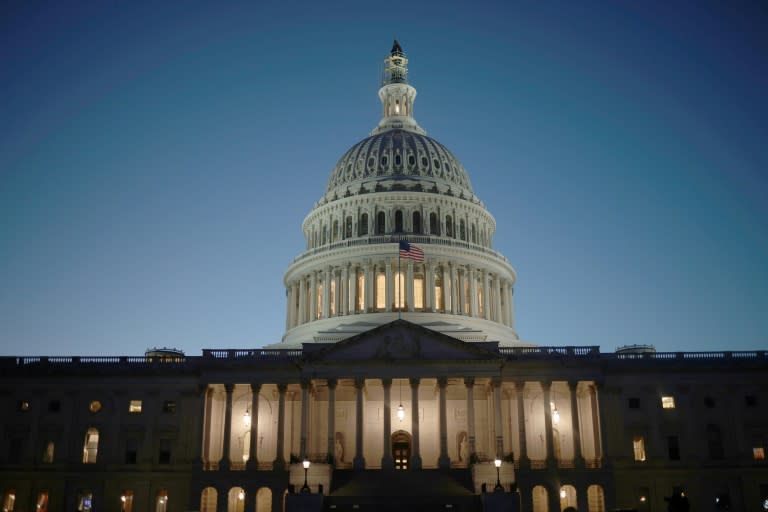US lawmakers stare down government shutdown as funding deal unravels

US lawmakers were set to vote Wednesday on temporary funding to thwart a damaging government shutdown, as a rebellion within the ruling Republicans piled pressure on party leaders racing to keep the lights on just weeks ahead of the presidential election.
Government funding is set to expire at the end of September and Congress will need a stopgap bill -- known as a "continuing resolution" (CR) -- to keep operations open past the election because the parties are nowhere near agreement on a full-year budget.
Former president Donald Trump has urged Republicans to force a shutdown unless certain demands are met.
That would cause the closure of federal agencies and national parks, limiting public services and furloughing millions of workers without pay just weeks before the election.
Republican House Speaker Mike Johnson plans to call a vote later Wednesday on a six-month extension, punting the shutdown deadline into March, when the next president would be in office.
But he has announced that he intends to pair it with legislation requiring proof of citizenship when registering to vote in federal elections, known as the SAVE Act.
Trump, who dominates the House Republican group and continues to claim falsely that he was cheated by voter fraud in the 2020 election, has lobbied for Johnson to add the measure to the package.
"I would shut down the government in a heartbeat... if they don't get it in the bill," Trump told Monica Crowley, a senior Treasury official in his administration, on her podcast.
President Joe Biden's administration -- worried about eligible voters being blocked from voter rolls or otherwise deterred -- opposes the SAVE Act, noting that noncitizen voting is already illegal and that there is no evidence that undocumented migrants take part in elections.
- 'Election integrity' -
Nearly 200 House Democrats already voted against the SAVE Act when it was approved by the House two months ago, in a 221-198 vote.
Johnson does not even appear to have the support of a critical mass of his own side and has said he has no fallback option if the package fails -- risking a shutdown at the start of October, less than five weeks before Election Day.
In the Senate, the governing Democrats plan to strip the voting provisions and give Republicans in the House an ultimatum: pass a "clean" CR moving the funding deadline to the end of the year or trigger a government shutdown.
With the election less than two months away, vulnerable Republicans see a government shutdown as disastrous for their reelection prospects.
At least 10 lawmakers from all sides of the party have come out against the Johnson proposal, with defense hawks worried about military readiness and fiscal conservatives always against stopgap funding measures that do not cut spending.
Republicans can only afford to lose four members on any party-line vote.
"I disagree with President Trump on the shutdown," Georgia Republican Austin Scott said on Fox Business.
"We have a very slim margin in the House of Representatives and I will tell you I do think a shutdown of the government has the potential to shift enough seats... that we have the potential to lose the House."
The spending fight is Johnson's last big test before he asks his lawmakers for another two years at the helm. If he cannot sway most of the rebels, he could look for an off-ramp rather than risking a failed floor vote.
He has argued that a March funding deadline would allow an incoming president Trump to weigh in on spending if he wins the White House, rather than approving the funding under a lame-duck Biden.
ft/aha
